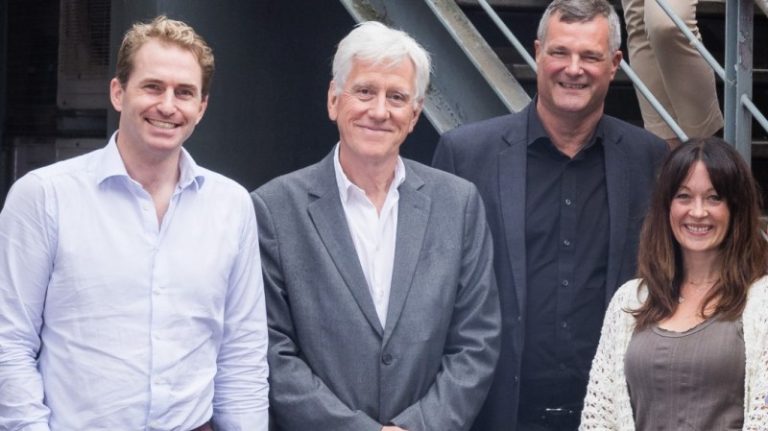Labour has opened the doors of Downing Street to business
Shortly after the election, Rachel Reeves held an event for business leaders in No 11. The chancellor joked to the assembled bosses that they must know the place better than she does. No, several replied, it was their first time.
Reeves shouldn’t have been surprised. Some on the left may assume that Tory governments are run for the benefit of big business, with bosses in and out of Downing Street all the time, but Reeves and Sir Keir Starmer believe that in recent years government engagement with business has left a lot to be desired. They are determined to do better.
In part, this reflects the political need to kill lingering suspicion that Labour is hostile to business, a legacy particularly of the Corbyn years. In opposition, Starmer and Reeves worked hard to persuade captains of industry that Labour, in her words, would be the most “pro-growth, pro-business” government the country has ever seen.
It is also an economic imperative. Boosting growth is Labour’s overriding priority and the new government is convinced that this will be possible only by working in close partnership with business to increase investment. One former senior official says that relations between government and business need to be closer than they were even when David Cameron was prime minister. “Even if we went back to where we were in 2010, that would not be adequate for what the government wants to achieve.”
Relations deteriorated after the Brexit referendum, particularly under Boris Johnson. “There was a significant reduction in direct engagement during the Brexit process, with quite a lot of hostility to business from senior members of the government,” says another former official.
Rishi Sunak tried to mend fences, appointing Franck (now Lord) Petitgas, the respected former Morgan Stanley International head, as his business and investment adviser. Many business leaders also praise the work done by Lord (Gerry) Grimstone of Boscobel, the former Standard Life chairman, who Johnson brought in as a minister focused on investment.
But these former business leaders tended to concentrate on firefighting or individual investment projects. Starmer and Reeves want business to be more involved in policy development and believe that companies need to be engaged much earlier in the process.
“It’s no good dreaming up a policy in your ivory tower, then proudly unveiling it, only for business to turn round and say it is completely unworkable,” says one former Labour adviser now in the private sector. In addition to investment, other areas where the government is looking to work more closely with business are skills, jobs and net zero.
Reeves has set up a new team in the Treasury to oversee business relations with Louise Tinsley, a senior civil servant, appointed director of special advisers and engagement. Her seniority is significant, a former Labour adviser says, adding that day-to-day engagement has tended to be handled by more junior staff, both in Whitehall and in some companies. “It is important for more senior people to be involved regularly on both sides. It doesn’t work for the chief executive to focus on it just once a year for a meeting with the secretary of state.”

Also working on engagement in the Treasury is Oliver Newton, who handled business relations for Reeves in opposition, and Ian Corfield, whose appointment has caused a row over whether his previous donations to Labour had been properly disclosed. A bright young thing in New Labour circles in the 1990s, Corfield then spent more than 20 years in retail banking before being hired by Reeves to help to deliver the government’s international investment summit on October 14. Another key figure in the government’s engagement with business is Varun Chandra, who recently quit as managing partner of Hakluyt, the corporate intelligence firm, to become Starmer’s special adviser on business and investment.
Although these appointments have been generally welcomed by business, some former Labour officials say that to change the way in which the civil service relates to business, the government will need to set up new machinery across Whitehall.
Both sides also will have to put in some hard work. Katharine Braddick, a former top Treasury official who is now head of strategic policy at Barclays, says that senior figures in government and business need to invest in building relationships of trust. “They have to spend enough time together to withstand the pressure when things get really difficult, like any good partnership.”
For politicians, that time is, of course, a lot easier to find in opposition than in government, but people close to Reeves say she is determined to continue hearing directly from a diverse range of business voices. “She is very conscious that she must listen not only to big companies, with their slick government relations departments, but also smaller companies. But working with government can be more difficult for smaller companies that are not geared up for it,” says one former adviser.
There are clearly risks to the government’s strategy. One is that companies are given unrealistic expectations about their influence. According to one former Labour official-turned-corporate adviser: “There is a danger that businesses that are not that used to the process will react with a mixture of astonishment and fury when their eminently sensible suggestions are not immediately adopted.”
One early test of the new approach will be the government’s proposed changes to workers’ rights. Before the election, Reeves promised that the changes would be “properly consulted on with business”. But that doesn’t mean business will get all it wants, warns one company adviser. “They will find that there are other people in the room who also have an important voice, most obviously the trade unions.”
Fans of the new engagement strategy say that to work it will require change not only in Whitehall but also from some businesses. Government wants genuine and thoughtful partnership, not self-serving lobbying on a few corporate obsessions, says one former Labour official. Bosses calling for the same old tax break and moaning about being over-regulated are not what ministers are looking for.
David Wighton, a former business editor of The Times, is a columnist for Dow Jones






